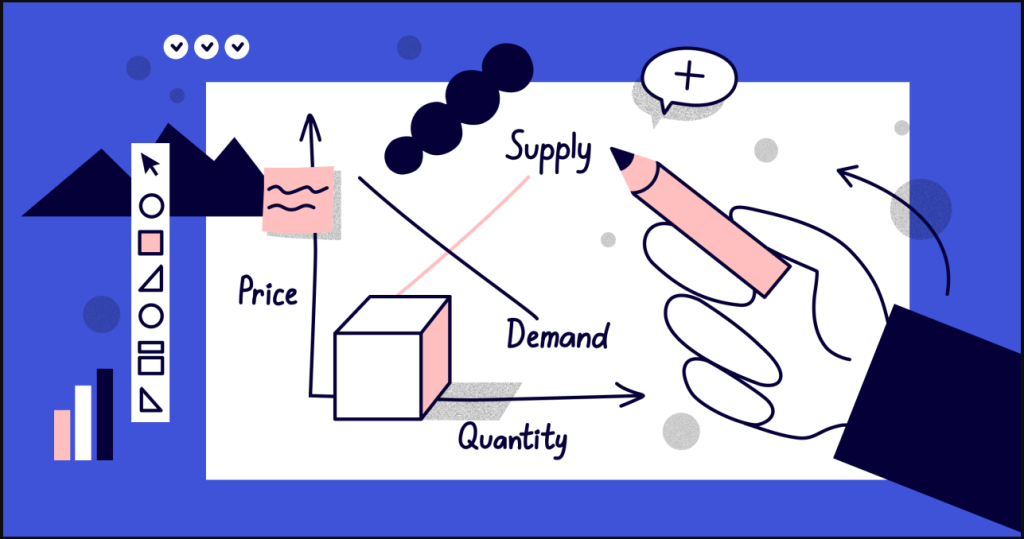Upgrade & Secure Your Future with DevOps, SRE, DevSecOps, MLOps!
We spend hours on Instagram and YouTube and waste money on coffee and fast food, but won’t spend 30 minutes a day learning skills to boost our careers.
Master in DevOps, SRE, DevSecOps & MLOps!
Learn from Guru Rajesh Kumar and double your salary in just one year.

The role of a DevOps Engineer has become increasingly important in modern software development and IT operations. As businesses focus on delivering software faster and more reliably, DevOps Engineers bridge the gap between development and operations teams, automating processes and enhancing collaboration. This increased demand for skilled DevOps professionals has made the salary for this role an important consideration for both employees and employers.
In this post, we will explore the salary range for DevOps Engineers, the factors influencing their earnings, and how salaries differ based on location, experience, and industry.
1. Average Salary for DevOps Engineers
Major Features:
- Global Salary Range:
- The average salary for a DevOps Engineer can vary widely depending on factors like location, experience, and the size of the company. Generally, salaries for DevOps Engineers tend to range from $80,000 to $150,000 per year in the United States, with senior roles and specialized skills pushing salaries higher.
- Salary Growth:
- DevOps Engineers can experience significant salary growth over time, especially with more years of experience and additional skills in automation, cloud infrastructure, and container orchestration (e.g., Kubernetes). Some senior-level roles can exceed $200,000 annually.
- Factors Influencing Salary:
- Salaries can vary significantly based on a variety of factors, including the location of the job, company size, and industry. The demand for DevOps Engineers is especially high in tech hubs like Silicon Valley, Seattle, and New York.
2. Location-Based Salary Differences
Major Features:
- Salary Variation by Region:
- The salary for DevOps Engineers can differ significantly based on geographic location. In high-cost-of-living areas, like San Francisco or New York City, salaries can be at the top end of the range, often exceeding $150,000 annually. In contrast, salaries in smaller cities or regions with a lower cost of living may range from $90,000 to $120,000.
- Global Variations:
- North America tends to have the highest average salaries for DevOps Engineers, followed by regions like Western Europe and Australia. However, countries like India and Brazil tend to offer lower average salaries, though these are still competitive within their respective markets.
- Salary by Tech Hubs:
- Salaries are often higher in major tech hubs due to the concentration of high-demand companies. For example, in cities like San Francisco, Seattle, or Austin, DevOps Engineers may earn more than in smaller cities or those outside of major tech ecosystems.
3. Factors Affecting Salary
Major Features:
- Experience Level:
- As with most professions, the level of experience plays a significant role in determining a DevOps Engineer’s salary. Junior DevOps Engineers with 1-3 years of experience typically earn in the range of $80,000 to $100,000, while mid-level engineers with 4-6 years of experience can earn $100,000 to $130,000. Senior and expert-level engineers with 7+ years of experience can earn salaries exceeding $150,000, especially if they have specialized skills.
- Certifications and Specializations:
- Having certifications in DevOps-related tools and technologies, such as AWS Certified Solutions Architect, Docker, Kubernetes, or Google Cloud Platform (GCP), can boost a DevOps Engineer’s salary. Specialized knowledge in areas like cloud infrastructure, security, and automation can make a candidate more competitive in the job market.
- Company Size and Industry:
- Larger companies and those in high-growth industries (like tech, finance, or healthcare) tend to offer higher salaries for DevOps Engineers due to the complexity and scale of their operations. Smaller companies or startups may offer lower salaries but could make up for it with additional perks, benefits, or equity.

4. Job Demand and Market Trends
Major Features:
- High Demand for DevOps Engineers:
- The demand for skilled DevOps Engineers continues to rise as companies adopt DevOps practices to speed up their software development cycles and improve operational efficiency. As cloud technologies and automation continue to grow in popularity, the need for skilled engineers in these areas will remain strong.
- Remote Work Opportunities:
- The growing trend of remote work has increased the earning potential for DevOps Engineers. Many companies now offer competitive salaries for remote positions, enabling engineers to work for companies in high-paying areas while living in regions with a lower cost of living.
- Expanding Job Roles:
- The role of a DevOps Engineer is becoming increasingly specialized with the adoption of new technologies like container orchestration, serverless computing, and machine learning pipelines. DevOps Engineers with expertise in these areas can command higher salaries, as they are in high demand.
5. Salary Comparison with Other IT Roles
Major Features:
- DevOps vs Software Engineers:
- DevOps Engineers typically earn similar salaries to software engineers, but there are differences based on the scope of the role. DevOps Engineers who focus on infrastructure and automation might earn slightly less than their counterparts in software development, but those with expertise in cloud platforms, security, or data engineering can earn salaries on par with top-tier software engineers.
- DevOps vs System Administrators:
- DevOps Engineers generally earn higher salaries than traditional systems administrators because they work with modern development practices and tools that automate much of the manual configuration and deployment work previously done by sysadmins. However, experienced sysadmins who transition to DevOps can command competitive salaries with the right skill set.
- DevOps vs SRE (Site Reliability Engineers):
- Site Reliability Engineers (SREs) are another closely related role that focuses on the reliability and uptime of production systems. While there is overlap between DevOps and SRE roles, SREs tend to have higher salaries due to their specialized skills in systems engineering, performance optimization, and incident management.
6. Salary Trends and Growth Potential
Major Features:
- Growing Salaries Over Time:
- As the demand for DevOps Engineers continues to grow, salaries are expected to rise steadily. Engineers with experience in cloud-native applications, microservices, and automation will continue to see increased earning potential as these technologies gain prominence.
- Job Growth in the Cloud and Automation Sectors:
- DevOps Engineers with expertise in cloud technologies, containerization, and automation tools are seeing a sharp increase in demand, which leads to higher salaries. As more companies adopt cloud computing, salaries for those with relevant expertise will remain strong.
- Future Prospects:
- With organizations continually optimizing their software development processes, DevOps Engineers are likely to enjoy strong career growth. Additionally, engineers who continually update their skills with certifications in emerging technologies like AI, machine learning, and cybersecurity will remain competitive in the job market.
The Salary Landscape for DevOps Engineers
In summary, the salary for DevOps Engineers varies widely based on experience, location, company size, and specialization. While the average salary typically falls between $80,000 and $150,000 per year, those with more experience or specialized skills in cloud platforms, automation, or security can earn significantly higher salaries. DevOps Engineers are in high demand, and their skills are essential for modern software development and IT operations.
As the role of DevOps continues to evolve with new technologies and practices, the potential for career growth and salary advancement remains strong. Continuous learning, skill development, and certification can help DevOps Engineers command higher salaries and remain competitive in the rapidly changing tech landscape.

 Starting: 1st of Every Month
Starting: 1st of Every Month  +91 8409492687 |
+91 8409492687 |  Contact@DevOpsSchool.com
Contact@DevOpsSchool.com